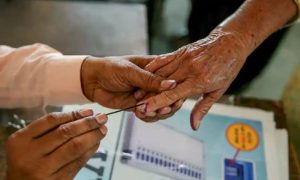DHAKA: Searing heat has forced 33 million children out of schools in Bangladesh, with temperatures in some areas soaring above 42°C (108°F).
Schools and colleges will remain closed until at least April 27th. This marks the second consecutive year that authorities have taken such measures due to extreme weather, mirroring recent school closures in the Philippines and India amidst a relentless heatwave across Asia.
Save the Children’s Bangladesh director, Shumon Sengupta, expressed concern over the situation, highlighting the vulnerability of Bangladeshi children, who are among the world’s poorest. The heat-related school closures serve as a stark reminder of the urgent need for action on climate change.
Bangladesh, being low-lying, faces significant vulnerability to the impacts of the climate crisis. According to the Intergovernmental Panel on Climate Change (IPCC), a sea level rise of 30 to 45 centimeters could displace over 35 million people from coastal districts, constituting about a quarter of the country’s population.
In response to the scorching conditions, thousands of Muslims in Bangladesh congregated in mosques and rural areas to pray for rain. Islamic cleric Muhammad Abu Yusuf highlighted the dire situation faced by many, with life becoming unbearable due to the lack of rainfall.
Hospitals and clinics have been advised to prepare for an increase in patients suffering from heat-related illnesses such as fever and headaches, with Health Minister Samanta Lal Sen urging measures to accommodate patients, including admitting those with heatstroke to air-conditioned wards.
Save the Children’s Sengupta stressed the need for immediate action to mitigate rising temperatures, emphasizing the importance of including vulnerable children in decision-making processes and climate finance strategies.
Unicef also underscored the serious risks posed by high temperatures to young children, particularly newborns and infants, urging concerted efforts to address these challenges.


























